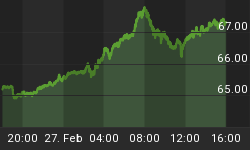Deutsche Bank Chief Josef Ackermann is looking after his own house rather than the eurzone's interests in calling for a Greek bailout. If there is one thing the financial crisis has taught us, it is that simply patching up trouble spots may not be a recipe for increased structural stability. If there was a problem it is that Greece was enticed to spend too much last decade because its cost of borrowing was too low. If Deutsche Bank is concerned about the fallout of Greek debt, the bank should heed European Central Bank (ECB) President Trichet's advice and take advantage of favorable market conditions to raise more capital.
There is a bright side to the Greek drama: the markets are reining in those who are fiscally irresponsible. In our assessment, the eurozone should work on reform that works with, rather than against, the markets:
-
German banks are exposed to just about any crisis in the world because their domestic fixed income markets are underdeveloped; as a result, German banks are at risk of overpaying in their quest to deploy their capital, plowing money into U.S. subprime mortgages and Greek debt, amongst others. To achieve a more stable German, European and global economy, domestic fixed income markets around the world must be fostered. Such a move increases transparency and stability throughout the markets. Increased liquidity in the eurozone fixed income markets would also make the euro a more formidable competitor to the U.S. dollar. Such change can't come overnight, but should be a priority for policy makers and financial institutions alike.
-
In our assessment, the euro is structurally sound. The ECB has pursued more robust policies than the Federal Reserve (Fed) throughout the crisis and is far further ahead in implementing its exit strategy. We are more concerned about UK sovereign debt than a contagion within the eurozone.
-
However, while the euro may be on a strong structural footing, the political process to discuss problems in a euro area country is not. We believe it would be most helpful if the European Commission on Economic and Monetary affairs took a greater leadership role in streamlining the debate. In this context, we applaud EU monetary affair commissioner Olli Rehn's comments today that remind all eurozone countries, not just Greece, about their fiscal responsibilities. In the absence of such leadership, there appears a lack of confidence by European policy makers in their own currency. The noise created in these discussions may add to instability and uncertainty; such noise, however, may be more a reflection of the weakness in the process, but not the substance.
We don't expect eurzone countries to reach their deficit targets anytime soon, but the eurzone, unlike the U.S., has rules in place to encourage fiscal restraint. Policy makers in the eurozone should now work on improving the process before contemplating bailouts. Greece certainly has major challenges, but when the dust settles it will likely be seen for what it is: a struggling country comprising 2 percent of the eurozone GDP. That's not a justification for a bailout to help Deutsche Bank recover paper losses. Over time, but not overnight, Greece will be rewarded with a lower cost of borrowing should they execute on their ambitious austerity measures.















